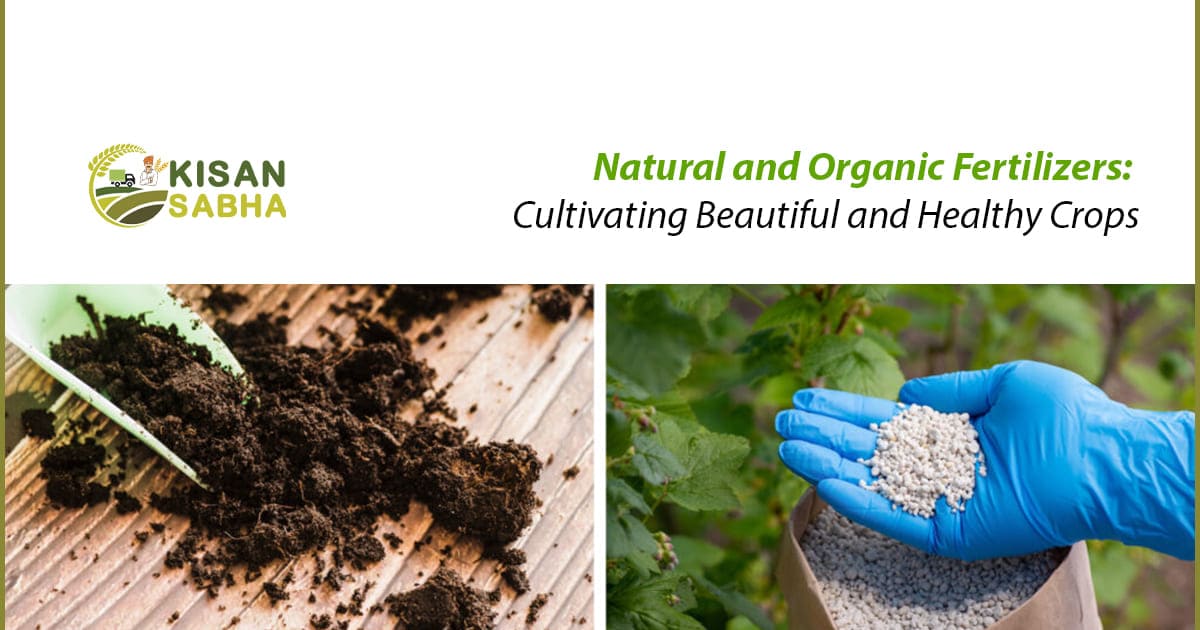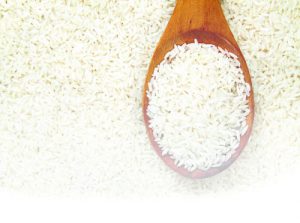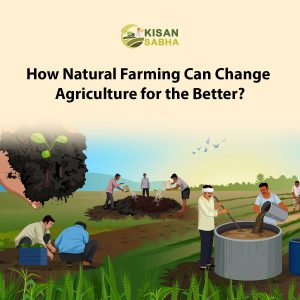In today’s world, where sustainability and environmental consciousness are paramount, many farmers and gardeners turn to natural and organic fertilizers to nourish their crops. These alternatives to synthetic fertilizers provide numerous benefits, not only for plant health but also for the overall ecosystem. In this article, we will explore the advantages of using natural and organic fertilizers, discuss different types of organic fertilizers, and provide insights on incorporating them into your crop management practices to ensure a beautiful and healthy harvest.
The Benefits of Natural and Organic Fertilizers:
Environmentally Friendly:
Perhaps one of the most significant advantages of natural and organic fertilizers is their minimal environmental impact. Unlike synthetic fertilizers, which can contribute to water pollution and harm beneficial organisms in the soil, organic fertilizers are made from natural materials and are free from harmful chemicals. They promote soil health, reduce erosion, and help maintain a balanced ecosystem.
Improved Soil Structure:
Natural and organic fertilizers, such as compost and manure, contain organic matter that improves soil structure. Organic matter enhances soil’s ability to retain moisture, improves aeration, and increases nutrient availability to plants. It also promotes the growth of beneficial microorganisms that aid in nutrient cycling and disease suppression.
Long-Term Nutrient Release:
One of the key advantages of organic fertilizers is their slow-release nature. Instead of providing an immediate burst of nutrients like synthetic fertilizers, organic fertilizers gradually release nutrients over time. This allows plants to absorb nutrients as needed, reducing the risk of nutrient leaching and ensuring sustained and healthy growth throughout the growing season.
Also Read:- 6 Best Medicinal Plants Farming
Types of Natural and Organic Fertilizers:
Compost:
Compost is a nutrient-rich soil amendment made from decomposed organic matter, such as kitchen scraps, yard waste, and plant residues. It is an excellent source of organic matter and provides a balanced array of essential nutrients necessary for plant growth. Compost can be made on-site by mixing organic materials and allowing them to decompose over time or purchased from reputable sources.
Manure:
Animal manure, such as cow, horse, or poultry manure, is a valuable organic fertilizer rich in nutrients. Manure adds organic matter to the soil and slowly releases essential nutrients like nitrogen, phosphorus, and potassium. However, it is important to properly compost manure before applying it to plants to minimize the risk of weed seeds, pathogens, and nutrient imbalances.
Bone Meal:
Bone meal is a natural fertilizer derived from ground animal bones. It is an excellent source of phosphorus, which promotes root development, flowering, and fruiting. Bone meal is particularly beneficial for crops that require a high phosphorus content, such as tomatoes, peppers, and root vegetables.
Fish Emulsion:
Fish emulsion is a liquid fertilizer made from fermented fish waste. It is rich in nitrogen, phosphorus, and trace elements, making it an excellent all-purpose organic fertilizer. Fish emulsion is easily absorbed by plants and provides a quick nutrient boost, stimulating growth and improving overall plant health.
Green Manure:
Green manure refers to the practice of growing specific cover crops, such as legumes or grasses, and then incorporating them into the soil before they reach maturity. This green manure adds organic matter, fixes nitrogen from the atmosphere, improves soil structure, and suppresses weeds. It is an effective way to replenish nutrients and improve soil fertility naturally
Incorporating Natural and Organic Fertilizers into Crop Management:
Soil Testing:
Before applying any fertilizer, it is essential to conduct a soil test to determine the nutrient requirements of your crops. Soil testing helps identify any nutrient deficiencies or imbalances, allowing for targeted fertilizer application. This ensures that plants receive the necessary nutrients without over-fertilization, reducing the risk of nutrient runoff and pollution.
Proper Application Rates:
To maximize the benefits of natural and organic fertilizers, it is crucial to follow the necessary application rates. Applying too little fertilizer may result in nutrient deficiencies, while excessive application can lead to nutrient imbalances and environmental pollution. Understanding the nutrient content of the fertilizer and the specific requirements of your crops will help determine the appropriate application rate.
Timing and Frequency:
Natural and organic fertilizers release nutrients slowly over time. Therefore, it is important to apply them well in advance of planting or during active growth periods to allow for nutrient availability. Additionally, utilizing multiple applications throughout the growing season ensures a consistent nutrient supply, supporting continuous plant growth and development.
Crop Rotation and Cover Cropping:
Implementing crop rotation and cover cropping practices can further enhance the benefits of natural and organic fertilizers. Crop rotation helps break pest and disease cycles and improves soil fertility by alternating nutrient demands. Cover cropping enriches the soil with organic matter, fixes nitrogen, and prevents soil erosion, contributing to overall soil health.
Conclusion:
Natural and organic fertilizers provide a sustainable and environmentally friendly approach to cultivating beautiful and healthy crops. Their numerous benefits, including improved soil structure, long-term nutrient release, and minimal environmental impact, make them an ideal choice for farmers and gardeners. However, by incorporating natural and organic fertilizers into crop management practices, we can support the health of our plants, nurture the soil, and contribute to a more sustainable and resilient agricultural system. Embracing these natural alternatives not only ensures the beauty and productivity of our crops but also promotes the well-being of our planet for future generations.





